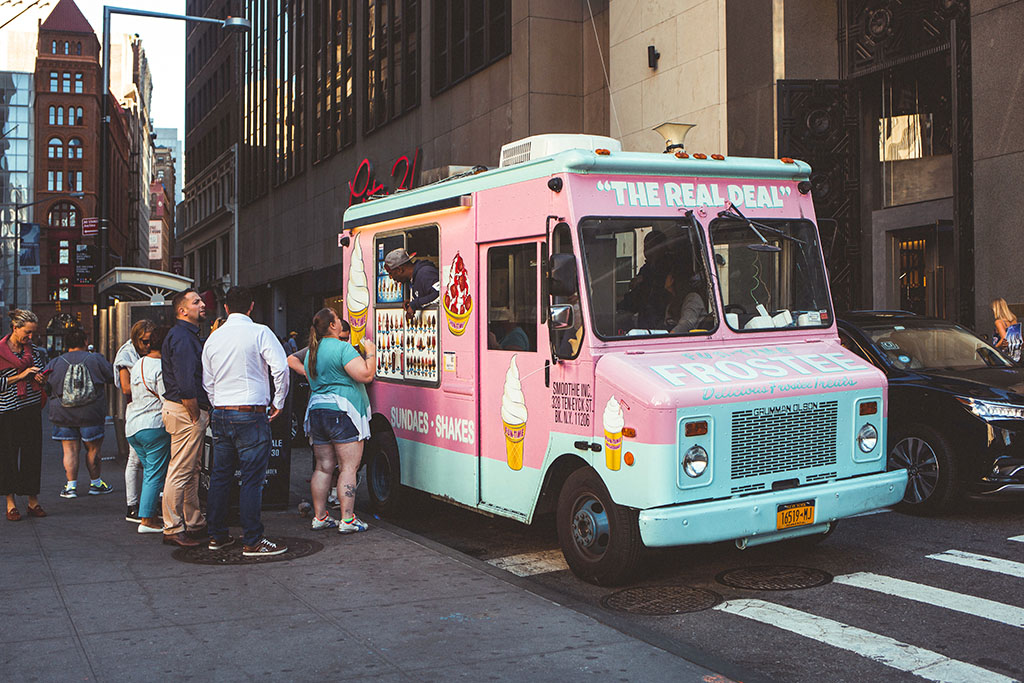
Photo by Anthony Fomin on Unsplash
You can have the sweetest menu on the street and a fantastic team to serve it, but if you don’t have the right equipment, you risk the success of your business.
Maybe the food truck of your dreams looms in your mind, but you wonder if it’s too much truck.
Your food truck business model should help you determine whether a small mobile kitchen will serve your needs now and in the future as your business grows. Whether you’re new to the food truck business, or you’re considering an upgrade, size does matter.
Explore a few benefits of smaller food trucks in today’s post.
Food Truck Dimensions
Choose your truck based on whether it’s big enough to support your staff, storage needs, and kitchen layout. Many mobile kitchen manufacturers work with smaller vehicles such as sprinter vans, passenger vans, and even recreational vehicles, aside from the ever popular step van configuration.
When working with step van dimensions, the average width is 7 feet, but it’s the length of the truck that determines your kitchen space. Food truck sizes typically range from 14 up to 34 feet, but you can have one built as small as 10 feet.
You can do a lot of business from a 10- to 14-foot truck—just ask the ice cream man!
Financial Benefits of a Smaller Truck
If you’re considering a food truck vs. a food trailer, in the category of upfront price, the trailer will likely win. However, when you invest in food vending equipment, price isn’t the only factor.
Think about the depreciation of food trucks and trailers over time. Food trailers generally retain value at a lower rate per year than food trucks do, which makes the truck a better investment.
You can start with a smaller truck, and when you’re ready to upgrade in a few years, it should have a higher resale value than a trailer.
Take Your Food to the People
One of the most significant benefits of operating a food truck business is portability. You can take your menu wherever, whenever. A small truck gives you a distinct advantage over the business owner with the 26-foot vehicle.
Small food trucks can fit in a broader range of public spaces. That means you can park on a side street, set up at a festival, or take your food to a private house party.
Let your imagination go wild! Small trucks can navigate narrow mountain roads, sandy beaches, and other places large trucks can’t go.
Opportunity to Tighten Your Menu
Out of all the types of food trucks, the small truck may force you to minimize what you serve. With a little creativity, you can turn the smaller prep, cooking, and serving space into an opportunity.
Decide on a few specialty items rather than a full-blown lunch menu. For example, specialize in chili dogs rather than dogs, burgers, and chicken sandwiches.
Smaller menus make it easier to control costs, which can increase your profitability.
Ready to Order Your Small Food Truck?
Whether you’re attracted to the financial or the practical benefits of buying a small food truck, we can help you select the ideal model for your business.
Contact our team and let’s put your truck together!
